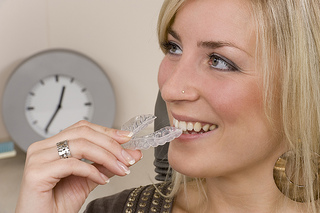Good Nutrition Leads to Healthy Mouths
March 3rd, 2021

At Hinnant Family Dentistry, we know the most common oral health diseases are tooth decay and periodontal disease (or gum disease), and both are among the easiest to prevent. One of the most common ways we recommend to boost your oral health is by improving your diet, because you (and your mouth) truly are what you eat. A healthy diet can lead to a healthy mouth and body, while an unhealthy diet can lead to the exact opposite.
The Role Nutrition Plays
While diet is not the only factor that leads to periodontal disease, studies suggest the disease may be more severe among patients whose diets lack essential nutrients. Poor diets will generally lead to a weaker immune system, leaving your body susceptible to all kinds of ailments, including periodontal disease.
A Well-Balanced Approach
There is no “magic” diet that we can recommend to improve your oral health, but the most important thing is to seek a well-balanced approach in your eating. While fad diets that emphasize one food group over another may help you lose weight in the short-term, they probably will not provide all the nutrients your body needs in the long run.
Meals should include a balance of lean meats or other healthy protein sources, colorful fruits and vegetables, whole grains, low-fat dairy, and healthy fats. Foods containing substantial amounts of sugar and salt should be consumed in moderation.
Soda and Sugar: A Dangerous Duo
Millions of gallons of soda are consumed every day in America, but sipping a cold soft drink can be very harmful to your teeth. Many of these beverages wear down the enamel that protects the teeth, which weakens and even destroys them over time. The American Beverage Association estimates that soft drinks account for almost 30 percent of all drink consumption in the U.S., averaging an annual total of about 50 gallons per person (up from only 20 gallons in the 1970s). For healthy teeth and a healthy body overall, try to limit your soda intake.
Sugar is another ubiquitous treat in our daily lives. When we eat sugar, naturally occurring bacteria in our mouths convert it to acids that attack tooth enamel. Consuming too much sugar can swiftly lead to tooth decay, cavities, and gum diseases like gingivitis. Most people do not even realize how much sugar they consume each day. It’s important to limit your daily sugar intake by reading the labels of all the food you eat, and sticking with natural food sources that are low in sugar, especially ones that minimize added sugar, such as fruits and vegetables.
If you have questions about your diet and how it may be affecting your oral health, talk to Drs. Keith Hinnant, Peter Klein, Philip Brantly about it. See you soon!





